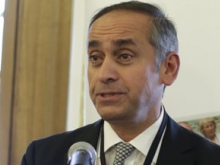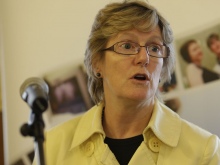New centre will translate scientific advances into safer NHS services
by Sam Wong

A major programme of research designed to improve safety in the NHS has begun at Imperial College London and Imperial College Healthcare NHS Trust.
A major programme of research designed to improve safety in the NHS has begun at Imperial College London and Imperial College Healthcare NHS Trust.
Over the next five years, doctors and nurses will work with psychologists, engineers, computer scientists, and designers to take scientific advances into the clinic to improve safety for patients.
The programme is funded by a £7.2 million award from the National Institute for Health Research (NIHR) to establish an NIHR Patient Safety Translational Research Centre (PSTRC). Imperial is one of two university-NHS partnerships to win funding for a PSTRC, with a second award going to NHS Greater Manchester and the University of Manchester.
 The new centre at Imperial is led by co-directors Professor Charles Vincent and Professor Lord Darzi. Professor Darzi hosted a reception to launch the centre at the House of Lords on 4 October. It will build on the work of the Centre for Patient Safety and Service Quality (CPSSQ), which was funded by the NIHR from 2007 until 2012.
The new centre at Imperial is led by co-directors Professor Charles Vincent and Professor Lord Darzi. Professor Darzi hosted a reception to launch the centre at the House of Lords on 4 October. It will build on the work of the Centre for Patient Safety and Service Quality (CPSSQ), which was funded by the NIHR from 2007 until 2012.
The innovations the centre will take forward range from the high-tech – such as using wireless sensors to monitor patients remotely – to the simple, such as a “medication passport” that reduces errors by giving patients a record of the drugs they have been prescribed. This project has been developed in collaboration with the NIHR Collaboration for Leadership in Applied Health Research and Care (CLAHRC) for Northwest London.
Researchers at the centre will also build on a surgical safety checklist developed by the World Health Organisation to improve surgical teamwork and reduce errors.
The centre draws on expertise from a wide range of disciplines. Psychologists will take existing findings from research on teamwork and apply them with clinical teams. Economists will analyse the cost-effectiveness of safety interventions, and consider the tradeoff between improved safety and productivity.
“We always thought that safety was never going to be solved entirely within healthcare,” Professor Vincent said at the reception. “The NIHR funding enables us to have a critical mass of specialists from other disciplines.”
Professor Dame Sally C Davies, Chief Medical Officer and Chief Scientific Adviser at the Department of Health, also spoke at the launch event.

“There are about a million interactions every day between the NHS and patients,” she said. “The majority go really well. But how do we make sure that safety gets even better? This research is about looking for the new ways to advance patient safety.
“I’m totally confident that this centre will pull advances through from basic research to drive improvements in patient safety and services.”
Article text (excluding photos or graphics) © Imperial College London.
Photos and graphics subject to third party copyright used with permission or © Imperial College London.
Reporter
Sam Wong
School of Professional Development